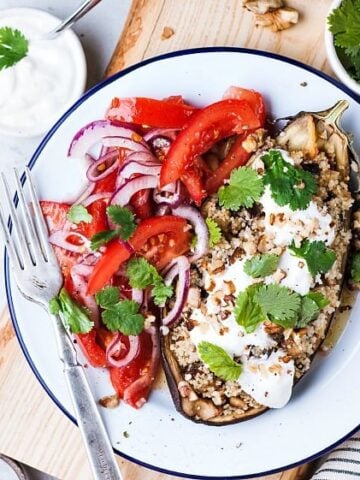
With so much controversy surrounding cholesterol, it is easy to assume that cholesterol is bad for you. In reality, cholesterol is a hero - the unsung antioxidant. Cholesterol serves an important role in the health of our body. Not only do we consume cholesterol but, our body produces it! That's right - cholesterol is produced by most human cells and the liver. The body actually produces about three times as much cholesterol as we take in through diet!
Functions of cholesterol- Among other things, cholesterol:
- Gives rigidity to our cells
- Is a precursor to hormones that help us deal with stress, sex hormones (like estrogen, progesterone, and testosterone) and vitamin D
- Helps keep the intestinal wall healthy thus preventing a "leaky gut"
- Is a powerful antioxidant
Did you catch the last one?
Cholesterol is a powerful antioxidant!
We have all heard about the antioxidants in berries, dark green vegetables and other foods - but cholesterol an antioxidant? Can you believe cholesterol, which we are told to avoid has been shown to come to the rescue of cells damaged by free radicals and help repair damage done to the arteries?
So, cholesterol when all is said and done, is not the culprit of heart disease, but rather, the antioxidant rushing to the scene of an accident to help with repairs.
It seems that we have been blaming the firefighters for the fire or perhaps, the vultures for the cow's death!
High blood cholesterol levels may indicate that the body is merely in need of cholesterol to protect itself. Protect from what? Well, antioxidants protect from free radicals and the damage they cause. According to Wikipedia:
Free radicals play an important role in a number of biological processes. Some of these are necessary for life ... but because of their reactivity, these same free radicals can participate in unwanted side reactions resulting in cell damage. Excessive amounts of these free radicals can lead to cell injury and death ...
What is the major source of free radicals in the Western Diet Necessitating Antioxidants?
Polyunsaturated oil.
Excess consumption of polyunsaturated oils has been shown to contribute to a host of diseases including heart disease.
Why are polyunsaturated oils so dangerous? Polyunsaturated oils become rancid or oxidized when subjected to heat, oxygen and moisture.
Hmm - that sound like exactly what happens during cooking - doesn't it?
Rancid oils are characterized by free radicals which are chemically reactive. Why? In their chemical structure, free radicals have an extra connection spot (or bond) that is looking to hook up with something else. Think of a teenager with hormones raging out of control wanting to hook up with anyone, not necessarily a good life long partner. So too, the free radicals are looking for other molecules to react with.
The problem is when the free radicals attach to the DNA and cell reproduction errors occur. Rancid oils contain free radicals which attack cell membranes and red blood cells, potentially damaging the RNA/DNA strand. This causes mutations in the skin, blood vessels and tissue.
- Wrinkles and premature aging are examples of free radical damage to the skin.
- Tumors are examples of free radical damage to tissues and organs.
- Plaque is the evidence of free radical damage in the blood vessels.
We have been taught that a major source of dietary cholesterol is eggs, therefore, we should avoid them. Other sources include, beef, pork, cheese, poultry, fish and shrimp. It is time to stop robbing our bodies of these excellent sources of animal fats, proteins and antioxidants. They are good for you!
So, get your antioxidants - be sure to eat your dark green veggies, your berries and don't skip out on the eggs!
Focus on good quality sources and stop blaming the firefighters and the vultures!
Sources: "The Cholesterol Controversy" Pinkney, Edward and Cathy, Dietary Fiber Food, Nourishing Traditions, Wikipedia





Simone says
Loved this post, thank you! we just learned about this in class tonight so it was nice to be able to read over it before bed... hopefully now this information will stick better :)
Jacqueline @ Deeprootsathome.com says
Dina-Marie,
I just discovered your site and have looked over lots of your content. I just have to ask you to join in over the weekly Wednesday link-up. If you would like to or are able to, many would benefit from your site. Love your practical and helpful posts. Thank you.
Julie says
Hello! Thanks for sharing this on Marvelous Mondays! I find this information to be very interesting. I've been reading some info, and a book by Gary Taubes, about the low carb diet and how the idea the meat and cholesterol is "evil" may not be the case.
Bobi Jensen says
Interesting! I love my daily eggs. I try to get more protein and that really helps.
Would love to have you join my weekend link party if you'd care to:
http://westernwarmth.blogspot.com/2012/10/weekend-warmth-5.html
Lea H @ Nourishing Treasures says
Thank you for your submission on Nourishing Treasures' Make Your Own! Monday link-up.
Check back tomorrow when the new link-up is running to see if you were one of the top 3 featured posts! :)
Craig Crawford says
Read this while eating blueberries in a high-saturated fat cream. Yummy.
ilona says
Thank you for this great post!